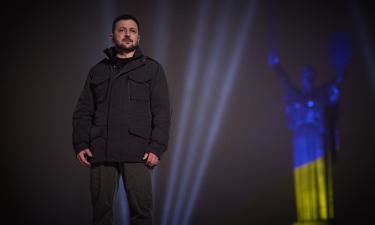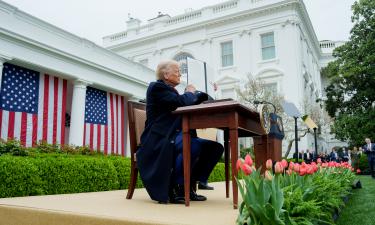Iran holds talks with European countries on nuclear program
European Union officials from Britain, Germany and France heard out Iran's deputy nuclear negotiator Javad Vaedi Monday at closed-door talks called by Iran to try to stall a deepening crisis between Tehran and the West over its nuclear program. Diplomats said officials from the three nations which have negotiated were meeting with Vaedi to see whether talks could resume with Iran over its nuclear enrichment program.
But EU foreign policy chief Javier Solana said the EU would maintain its tough stance against Iran's desire to restart its program, which the EU and Washington fear could be used to develop nuclear weapons. Iran rejects these claims.
The three EU nations representing the 25-nation bloc, and the United States have called for Iran's referral to the U.N. Security Council, a move that could lead to sanctions. China and Russia remain unconvinced.
The Iranians "have taken decisions that were absolutely incompatible with the commitments that they have made," Solana told reporters. Solana said he would report back to a meeting of EU foreign ministers over lunch Monday. He said a possible way out of the crisis is for Iran to sign up to a Russian compromise proposal. Moscow has offered to process uranium on Iran's behalf.
"We are looking with interest at that proposal," said Solana. "It is a proposal in which enrichment would be done outside, in Russia, but at the moment no agreement has been reached between Russia and Iran." Luxembourg Foreign Minister Jean Asselborn said the EU had to push Iran to accept the Russian proposal.
Iran's top nuclear negotiator, Ali Larijani, said Friday that the Russian proposal does not meet "all the nuclear energy needs of Iran." Iranian Foreign Ministry spokesman Hamid Reza Asefi said the door remained open for a compromise between Iran and Europe.
The Brussels meeting, which EU officials stressed was not a negotiating session, comes as U.S. Secretary of State Condoleezza Rice joins foreign ministers from the four other permanent Security Council members, Britain, France, Russia and China, plus Germany, in London on Monday night in an attempt to break the diplomatic deadlock over Iran's nuclear program, reports the AP. I.L.
Subscribe to Pravda.Ru Telegram channel, Facebook, RSS!





